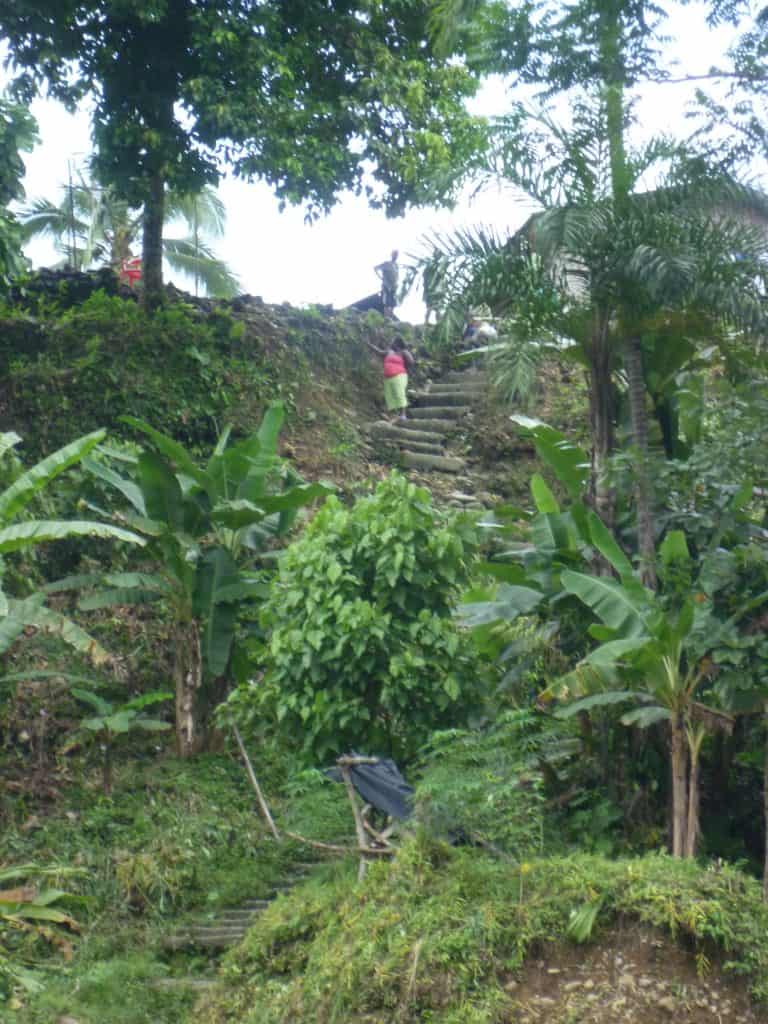Indigenous and Afro-Colombian citizens living in Chocó are living in the midst of a continuing conflict despite the ongoing Peace Process with the FARC Guerrilla. Armed neo-paramilitary and Ejercito de Liberacion Nacional (ELN) guerrilla groups continue in the region and are fighting for control of illicit economies.
Communities have been reporting an increase in the number of ELN guerrillas in the Bajo Atrato region, Chocó. Alongside this, they are experiencing an increased militarisation of indigenous and Afro-Colombian collectively owned territories. This increased militarisation has led to infractions of International Humanitarian Law (IHL), forced displacement of communities and forced recruitment of children and the use of anti-personnel mines in their territory. Goods and facilities that serve as a base for the execution of military attack operations have been set up in the vicinity of the Afro-Colombian communities and Indigenous Resguardos (reserves) and in near sacred areas.
The car bomb attack by the ELN on 17 January 2019, against the General Santander National Police Cadet School in Bogota, which killed 21 people and injured 68, has been widely condemned in Colombia. The communities in Chocó and ABColombia add their voices to the condemnation of this act by the ELN. The repercussions of the attack have been felt not only in Bogota but also throughout Colombia and have weakened the peace process, as has the termination of Peace Talks with the ELN by the Colombian Government. This major set-back to the peace process was further exacerbated by the Colombian President Ivan Duque reactivating Interpol red notices[1] against the ELN negotiators and refused to comply with the protocols agreed by the previous government if talks should breakdown. However, the guarantor countries of Norway and Cuba said that they will remain committed to the protocol that obliges Duque to allow the ELN leaders to reunite with their troops in the event of ruptured talks.
Communities in Chocó, in their
public statement (see below), called on the Colombian Government and the ELN to
return to dialogue and to seek a peaceful solution to the armed conflict.
Chocó has suffered greatly throughout the conflict from injustice, social inequality, exclusion and marginality, which has left thousands of victims in the ethnic territories. Therefore, it is essential not to close the door on the negotiations and to generate bilateral agreements between the armed actors engaged in this conflict that allows immediate humanitarian relief in the Department of Chocó.
[paraphrasing of the public statement written in Spanish from Chocó]
Background: Chocó
Civil society has always been very active in Colombia. In Chocó, indigenous, Afro-Colombian, women and faith leaders are working to protect the rights of the communities, especially land rights, the right to self-determination in development, the rights to life, the rights of children not to be forcibly recruited and ethnic communities’ right to free, prior and informed consent under ILO Convention 169.
These leaders are calling on the Colombian government, in particular to ensure the full implementation of Law 70 of 1993, and Law 89 of 1890, which establish the recognition of the fundamental rights and freedoms of Indigenous and Afro-Colombian Peoples, who as ethnic communities have special protections under the Colombian Constitution and special land rights.

The communities in Chocó are encountering a humanitarian crisis, which includes the forced displacement and confinement of indigenous and Afro-Colombian communities. For example,on 7 December 2018, fighting between the Colombian Navy (Infantry Marina) and the ELN guerrilla group in the municipality of Bajo Baudó (Chocó), caused the mass displacement of 330 people (63 families).[2]
In the first ten months (January to October) of 2018, 45,471 people were forcibly displaced in Colombia.[3]
According to the local population in Chocó, all armed actors are ignoring International Humanitarian Law (IHL), the increase in presence of the ELN has led to communities being stigmatised and placed at greater risk. There are an increasing number of threats against communities in the region, increased militarisation of their territory, forced recruitment of young people both by the guerrilla and criminal groups and an increase in the number of young people and community leaders being killed by neo-paramilitary groups and the ELN. Confinement and displacement are causing severe hardship and malnutrition. In short, Chocó is experiencing a humanitarian crisis. Due to this situation the three dioceses in Chocó, namely, Quibdó, Istmina-Tadó and Apartadó issued, together with the communities, a Public Statement.
Calling on all armed actors
- to stop displacement, confinement or restriction of free mobility of the Indigenous Peoples and Afro-Colombian Communities; to abstain from the practices of forced disappearance, kidnapping and forced recruitment and use of children and adolescents for war actions; to respect territorial autonomy and sacred spaces.
- To commit to respect for women and girls and stop carrying out all acts of violence that violate the personal integrity of girls, adolescents and women.
Calling on the international community
- to monitor permanently the serious humanitarian and human rights situation in the department of Chocó;
- to support their call for the Colombian Government to fully implement the agenda drawn up by the communities of Chocó called: “Humanitarian Agreement Now! for Chocó”.
[1] Interpol Red Notice is essentially an international arrest warrant.
[2] OCHA Desplazamiento masivo en Bajo Baudó (Chocó)
[3] CODHES, October 2018
